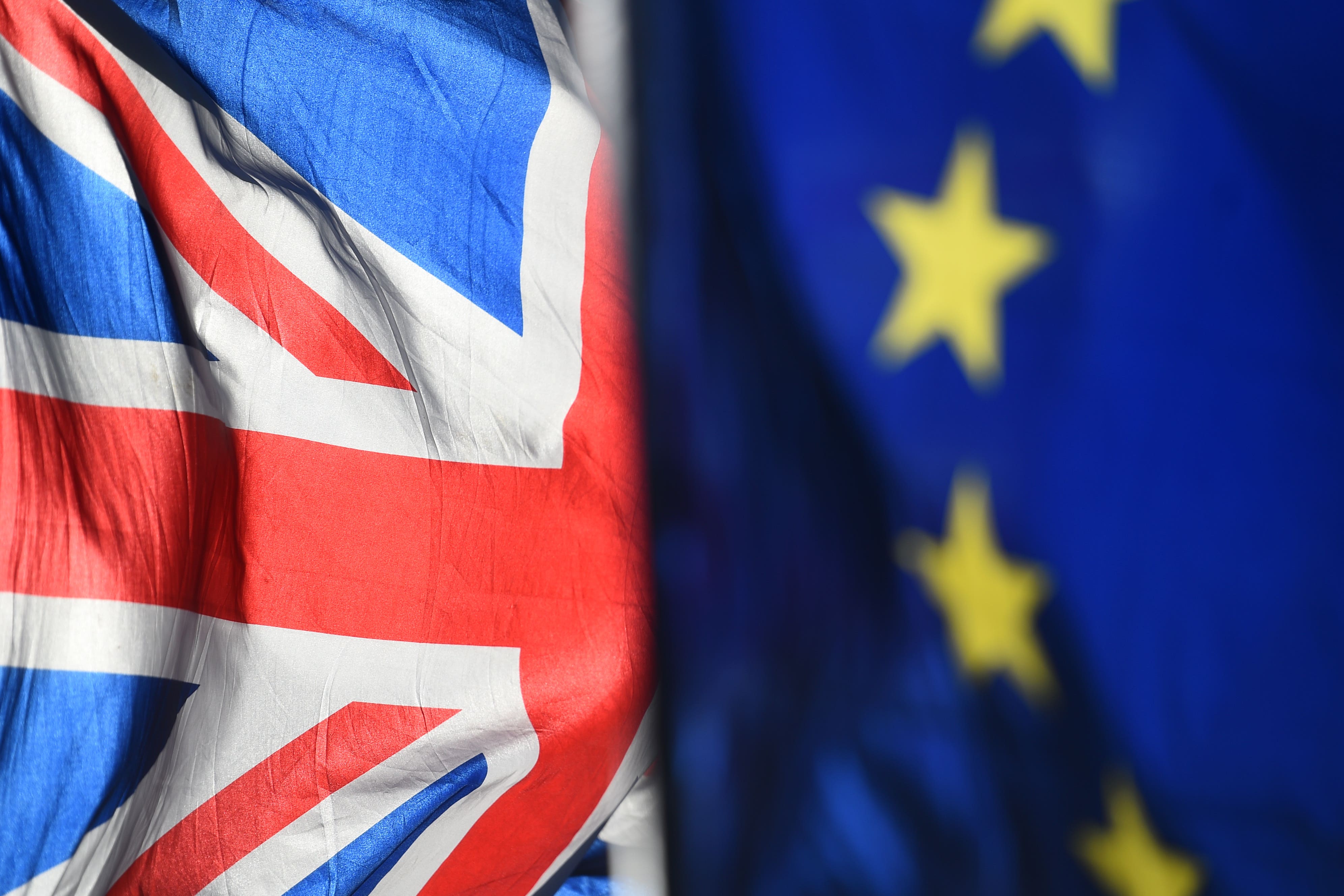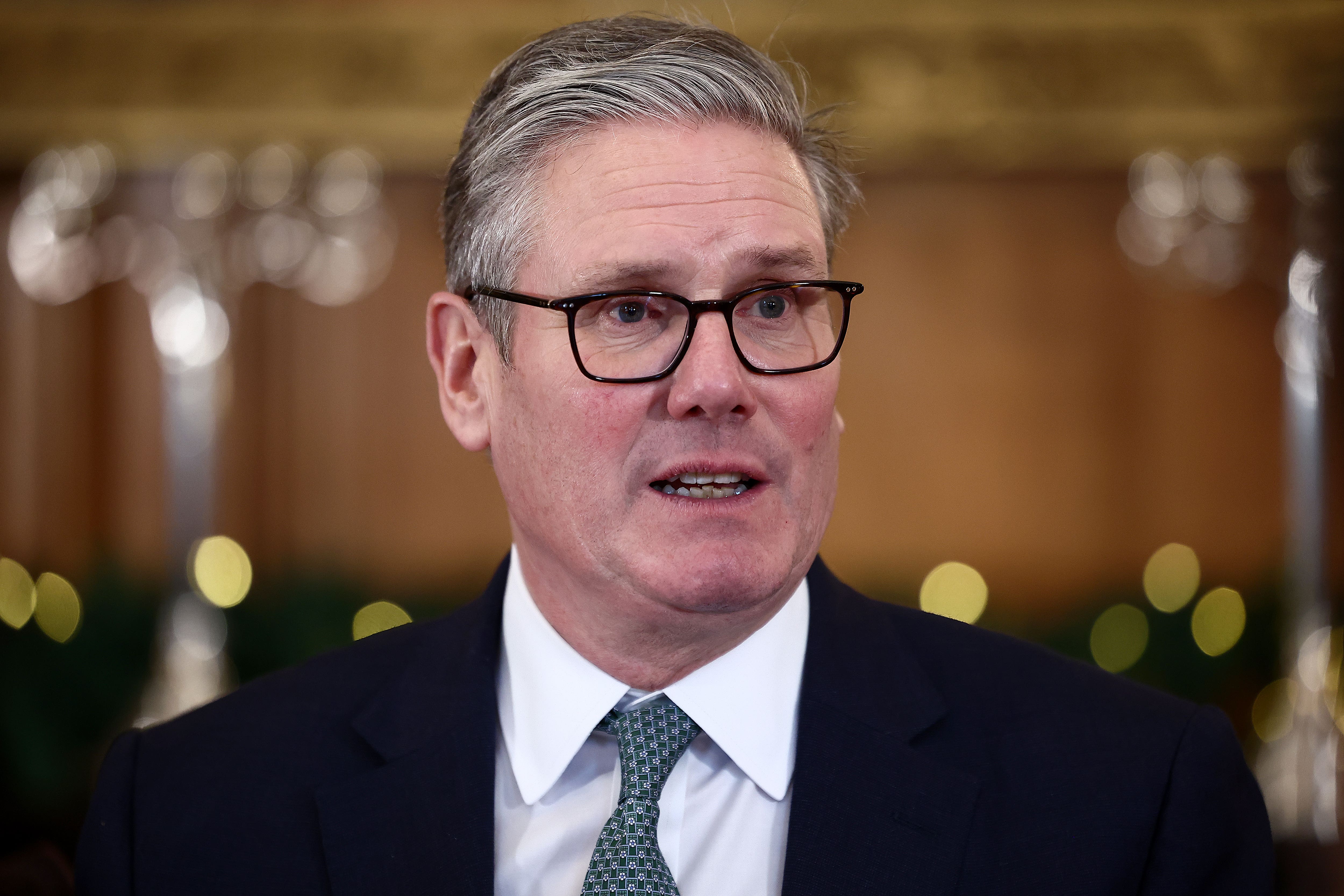Sir Keir Starmer has been accused of having his “head in the sand” over Brexit as figures show conclusively that the UK is worse off five years after leaving the EU.
The prime minister has been urged to undertake a radical rethink of the Brexit reset to drive economic growth, as he prepares to open his negotiations at a dinner with EU leaders on Monday.
Writing in the The Independent, Lib Dem leader Sir Ed Davey today called for the government to drop its red line on joining an EU customs union, in order to strengthen Britain’s hand with Donald Trump.
Following the US president’s inauguration, Sir Ed said the PM had to “acknowledge that the circumstances have changed” as he also accused Labour and the Tories of taking part in a “conspiracy of silence” over the UK’s relationship with Europe.
Already, Sir Keir has been criticised for a lack of ambition in his negotiations, apparently having ruled out simple measures like creating a youth mobility scheme as well as refusing to consider rejoining the EU or its single market.
And serious concerns have been raised that the Labour government has failed to properly acknowledge the impact of Brexit, after a written parliamentary answer revealed that Sir Keir has refused to carry out an audit on the economic damage so far caused by Britain’s withdrawal from the bloc.

Also writing in The Independent today, former Tory minister Dominic Grieve and former Green Party leader Caroline Lucas, the joint chairs of European Movement UK, called on the prime minister to seek “associate membership” for the UK in a bid to “redefine its place within the continent”.
Mr Grieve and Ms Lucas warned: “The European Union is evolving, and with the risks presented by Donald Trump – from an emboldened far right and trade wars to rolling back on climate commitments and undermining multilateralism – the urgency to accelerate this transformation has never been greater.
“Franco-German proposals to reform and expand the EU outline a flexible, multi-tiered structure, with ‘concentric circles of integration’ at its core. It envisions additional tiers for candidate countries, such as Ukraine and the Western Balkans, and offering ‘associate membership’ for partners, including, for now, the UK. This presents an opportunity for Britain to rebuild trust, foster closer cooperation, and redefine its place within the continent.”

The British Chambers of Commerce (BCC) has also called on the government to use the planned EU reset to help drive economic growth, warning that there is “no time to lose”.
William Bain, head of trade policy at the BCC, said: “Firms are being held back by a complex web of red tape and regulatory burdens. This is ramping up costs, so improving our trading relationship with the EU could provide the impetus to growth needed to transform the dour outlook many are facing.”
Meanwhile, Sir Keir’s government has been accused of “negligence” after it refused to estimate the official cost of Brexit to the UK economy.
Nearly five years after Britain’s exit from the European Union, critics said ministers were putting their “head[s] in the sand” over the damage caused by the loss of the UK’s biggest market.
And they accused Sir Keir of lacking confidence in his flagship Brexit reset with other EU countries, following claims that it has so far achieved little.
There have been suggestions that Brexit could be costing the British economy an astonishing £100bn a year. But the Treasury has refused to audit the overall cost.
Asked if the government would estimate the impact of the UK’s exit from the EU, shadow chief secretary to the Treasury Darren Jones said: “No. The government is focused on resetting the relationship with the EU, which will support economic growth, the central mission of the government.”
Former deputy prime minister Michael Heseltine said: “The government may be reluctant to do an assessment because it would force them to reappraise our position and to hasten our return to membership of the European community.”
Stephen Gethins, the SNP MP who asked the question, said Brexit was “one of the biggest shocks to have hit the UK economy”, adding: “It is extraordinarily negligent not to understand how those changes are affecting our economy.”

He said the UK’s exit “continues to impact on every sector of the economy”. Mr Gethins continued: “A hard Tory Brexit was a folly that has been bad news for us all. That Labour has continued that damage defies belief. To refuse to carry out an economic analysis underlines the lack of confidence that the government has in its own policy.”
Naomi Smith, chief executive of the pro-EU campaign group Best for Britain, said: “It is likely we will never know the full extent of the damage, not just to our economy, but to opportunities for young people, relationships, life plans and cultural exchange.
“This government can begin to undo this damage by working towards beneficial regulatory alignment and a youth mobility scheme with the EU, and our polling shows that’s what the British people want as well.”
Emma Knaggs, deputy chief executive of European Movement UK, said: “It’s time for ministers to stop sticking their heads in the sand over the damage Brexit continues to wreak on the UK economy.” The Independent recently revealed that government estimates show Brexit is on course to cut UK trade by 15 per cent in the long run.
In terms of the “divorce” costs alone, before any hit to the economy is taken into account, in October a Treasury minister confirmed that Britain had spent £24bn withdrawing from the EU – with a further £6.4bn still to pay.
A Treasury spokesperson said the chancellor had been in Brussels recently “as part of the government’s commitment to resetting our relationship with the European Union”.
“A more businesslike relationship with the EU going forwards will benefit working people and put more money in their pockets by breaking down barriers to trade, creating opportunities to invest and help UK businesses sell in European markets,” they added.







